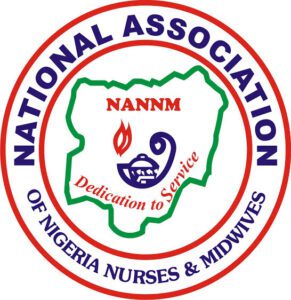
Nigeria’s TB programme has made significant progress – Minister
Minister of Health, Dr Osagie Ehanire, says Nigeria’s Tuberculosis (TB) programme has made significant progress.
He said this on Friday in Abuja, at the mid-term review of the TB National Strategic Plan (NSP) 2021-2025.
Represented by the Minister of State for Health, Mr Joseph Ekumankama, he said that the significant progress was in various areas.
According to him, there is significant increase in TB case notification with improved TB treatment coverage.
He also said that there was very high treatment success rate, good involvement of the private sector and communities in TB control and good collaboration between TB and HIV programme.
Ehanire said that in 2020 the National TB, Leprosy and Buruli Ulcer Control (NTBLC) programme took a bold step to address the low TB case detection by developing the NBS with the main goal of accelerating efforts at ending TB epidemic.
This, he said was by ensuring access to comprehensive and high-quality-patient-centred and community-owned TB services for all Nigerians.
He, however, noted that there were areas where improvement was needed in the implementation of the NSP.
“Some of these areas include bridging the gap in TB financing by increasing domestic funding for TB control.
“Accelerating efforts toward finding and treating the remaining missing TB cases, fostering collaboration with other Ministries, Departments and Agencies.
“Others are ensuring 100 per cent coverage of health facilities in Nigeria with TB services in line with the Universal Health Coverage target, strengthening private sector and community engagements and scaling up TB preventive therapy.’’
The News Agency of Nigeria (NAN) reports that goal of the NTBLCP plan is to accelerate efforts at ending TB in Nigeria by ensuring access to comprehensive and high quality patient-centred and community-owned TB services.
It also aims to enhance childhood TB detection and treatment through innovative provision of integrated services towards achieving childhood TB proportion of 16 per cent among all forms of TB cases.
Other objectives of the NSP are to rapidly scaling up TB preventive services with the number of contacts receiving TB preventive therapy increasing annually from 10,788 in 2019 to 588,218 by 2025.
In a goodwill message, Ms Racheal Goldstein of USAID office of HIV and TB control, one of the TB control programme partners, commended Nigeria for accelerating TB case finding in Nigeria.
“I think we are in a place that we did not expect to be at the beginning of the strategy and I congratulate everyone who has worked so hard together to make that happen.
“I encourage renewed focus and commitment that I know the TB community is putting on from childhood TB and working to find and identify those best practices and to do better turns,’’ she said.
Goldstein noted that the challenge of drug-resistant TB was enormous but that given what Nigeria had achieved, it could do more through the partnership.
She also said that Nigeria was also an example to other countries, not only in the African region but globally, for the way that it adapted to new diagnostic tools and treatment regimens.
“We are at a very critical juncture for the national TB programme. You are about to raise your Global Fund grant for the next three years.
“The U.S. government is committed to providing the technical support and the resources and service delivery support.
“This is to make sure that all the donor resources that are coming to Nigeria, along with government’s contribution and commitment are doing the best that we can to optimise for the NSP,’’ she added.
Dr Omole Fadare, who represented the WHO, also commended Nigeria and all the partners it has worked with overtime, for the significant progress recorded.
He said that the WHO was committed to continuous support of TB programmes in Nigeria.
Fadare added that it would also support the TB programme to use the outcome of the review to develop new grant applications that would run from 2024 to 2026.



